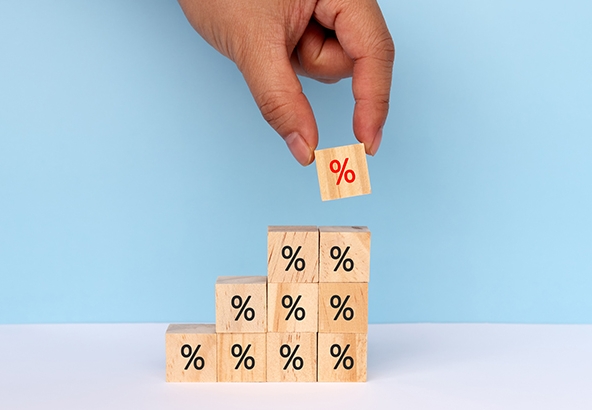When you’re in the market for a new home, one of the most critical factors to consider is the mortgage rate. Mortgage rates directly impact your buying power, determining how much home you can afford and what your monthly payments will look like. Understanding how mortgage rates affect your homebuying power can help you make informed decisions during your home search. In this article, we’ll explore the various ways mortgage rates influence your ability to purchase a home.
-
What Are Mortgage Rates?
Mortgage rates are the interest rates charged by lenders on a home loan. These rates are influenced by various factors, including the economy, inflation, and Federal Reserve policies. Mortgage rates can fluctuate daily, and even a slight change can significantly impact your homebuying power.
Understanding Mortgage Rates
Mortgage rates are typically expressed as an annual percentage rate (APR). This rate includes the interest rate as well as other costs associated with securing the loan. It’s crucial to compare APRs when shopping for a mortgage because they provide a more accurate picture of what the loan will cost over time.
-
How Do Mortgage Rates Impact Loan Affordability?
Mortgage rates directly affect how much you can borrow from a lender. When mortgage rates are low, you can afford to borrow more, increasing your homebuying power. Conversely, higher mortgage rates reduce the amount you can borrow, potentially limiting your options in the housing market.
The Link Between Mortgage Rates and Loan Amounts
For example, if you’re looking at a 30-year fixed-rate mortgage and the mortgage rate is 3%, your monthly payment on a $300,000 loan would be significantly lower than if the mortgage rate were 5%. This difference in monthly payments translates into how much home you can afford. Lower mortgage rates make higher loan amounts more affordable, giving you access to homes with higher price tags.
-
The Role of Mortgage Rates in Monthly Payments
One of the most immediate ways mortgage rates impact your homebuying power is through your monthly payments. Mortgage rates determine how much of your payment goes toward the principal (the amount you borrowed) and how much goes toward interest.
Mortgage Rates and Budgeting
When mortgage rates are low, your monthly payments are lower, allowing you to allocate more of your budget to other financial goals. However, when rises, your monthly payments increase, potentially stretching your budget thin. It’s essential to consider not just the loan amount but also the rate when determining what you can afford.
-
Mortgage Rates and Total Interest Paid Over the Life of the Loan
Mortgage rates significantly impact the total interest you pay over the life of the loan. A lower mortgage rate means less interest accrues over time, reducing the overall cost of the loan.
Long-Term Cost Considerations
For example, on a 30-year fixed-rate mortgage of $300,000 at a 3% mortgage rate, you would pay approximately $155,000 in interest over the life of the loan. However, if the mortgage rate were 5%, the interest paid would increase to approximately $279,000. This considerable difference highlights the importance of securing a low mortgage rate.
-
How Do Mortgage Rates Affect Home Price Negotiation?
When rates are low, buyers may be more willing to pay closer to the asking price because their monthly payments will be lower. Conversely, when mortgage rates are high, buyers may negotiate harder to reduce the purchase price and offset higher monthly payments.
Market Dynamics
In a market with rising mortgage rates, sellers might need to be more flexible on price to attract buyers who are cautious about their homebuying power. Understanding the rates can give you leverage in negotiations, allowing you to secure a better deal.
-
Mortgage Rates and Down Payment Requirements
The mortgage rate you qualify for can also affect how much you need to put down as a down payment. Lower mortgage rates often mean you can put down a smaller percentage while still keeping your monthly payments manageable.
The Connection Between Rates and Down Payments
For instance, with a lower mortgage rate, you might only need to put down 10% instead of 20% to achieve a desirable monthly payment. Conversely, higher mortgage rates may require a larger down payment to keep your payments within your budget.
-
The Impact of Mortgage Rates on Long-Term Financial Planning
Finally, mortgage rates affect your long-term financial planning. The rate you lock in when you purchase a home will influence your financial obligations for years to come.
Financial Flexibility
A lower mortgage rate can provide more financial flexibility, allowing you to save for retirement, invest in other assets, or pay down other debts. On the other hand, a higher mortgage rate might require more of your income, limiting your ability to pursue other financial goals.
Conclusion
Mortgage rates significantly impact homebuying power. By understanding how mortgage rates work and staying informed about rate trends, you can maximize your purchasing power and achieve your dream of homeownership. Contact Full Circle Real Estate to learn more!



